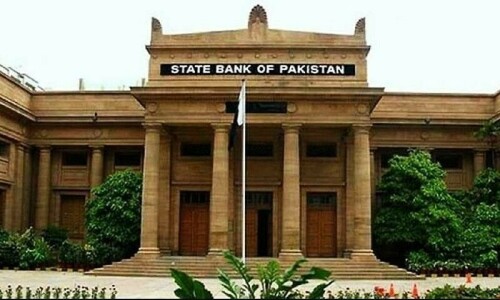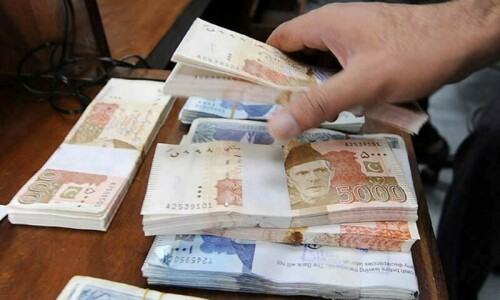KARACHI: Foreign investment inflows into domestic bonds have reversed, with a significant disinvestment of $78 million taking place within the first 15 days of August.
The sudden reversal in investment inflows may have multiple causes, but investors attribute it to the declining returns on treasury bills, which may further decrease in the near future.
The first month of the current fiscal year (July) saw record inflows into treasury bills, totaling $258.3m.
According to the State Bank’s latest data released on Friday, investment inflows declined sharply in August, indicating a shift in investment strategy. Financial experts predict further decline in T-bill inflows due to two key factors: decreasing returns on T-bills and the government’s growing challenges in securing a $7 billion loan from the IMF, which has reportedly requested Pakistan to secure a rollover of $12bn from China, Saudi Arabia, and the UAE.
Reversal in inflows is attributed to declining returns on govt papers
The foreign investment inflows during 15 days of August stood at $8.194m against an outflow of $86.347m. The net outflow was $78.15m.
According to the SBP data, total inflows during July and half of August were $271.5m, while outflows were $180m, with the net remaining investment standing at $91.5m.
Inflows in T-bills are attributed to the stable exchange rate and attractive returns on domestic bonds. However, the State Bank’s decision on July 29 to cut interest rates by 100 basis points to 19.5 per cent has reduced returns on T-bills. Returns on T-bills have already dropped to 17.4pc and even lower to 16.99pc for 12-month T-bills.
Financial experts said the returns are still too high compared to other developing economies. Foreign investors are capitalising on this opportunity, borrowing from foreign banks at lower rates to invest in Pakistan and earn more than double the returns.
According to them, the stable exchange rate, supported by the State Bank’s foreign exchange reserves of over $9.4 billion, reflects economic stability, as both exports and remittances are showing robust health.
However, the declining inflation has forced the State Bank to further cut the interest rate. The financial experts believe the State Bank would slash the rate by 150 basis points in the next monetary policy to be announced on Sept 12.
A further cut means the T-bills rate would go down and the foreign investors may not show interest in investing in the domestic bonds.
In the last fiscal year, the country received total inflows of $580.8m into T-bills.
The experts were of the view that this could be a setback for the country already facing external debt servicing problem. The country is unable to launch bonds to raise dollars from the international market despite slight improvement in the country’s ratings by Fitch and S&P recently.
Published in Dawn, September 7th, 2024















































Dear visitor, the comments section is undergoing an overhaul and will return soon.